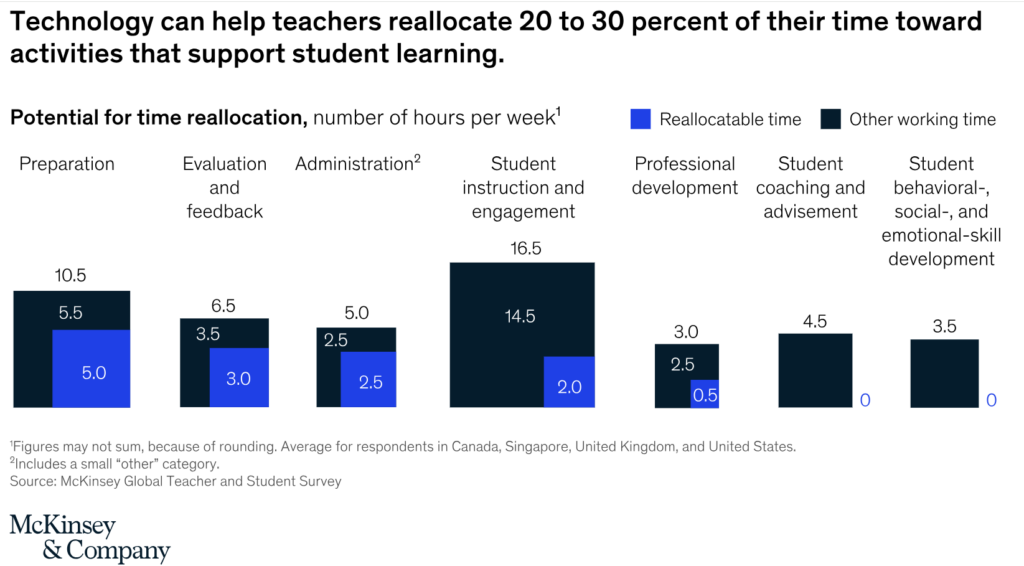
AI CERTS
9 months ago
Is AI the Future of Education? Policymakers Hold the Key
AI is transforming the world in various ways, with the most pronounced advancement in the education domain. Personalized learning has enhanced motivation for learners, which has become the key factor behind learning since AI can identify struggles and provide early intervention to prevent them from falling behind. Furthermore, AI tools automate administrative tasks, freeing up valuable teachers for more personalized instruction and student interactions. However, it is crucial to ensure the ethical and responsible use of AI, where AI and education guidance for policymakers come in to thoughtfully integrate AI into the educational landscape where learners can thrive.

The Essential Guidance of Policy Makers in Education
The “AI and Education: Guidance for Policy-Makers” report, developed by UNESCO, explores the potential of AI in education. While it recognizes the challenges and ethical concerns, it also highlights the potential of AI to address educational issues, innovate learning practices, and contribute to achieving UN SDG 4. The report emphasizes the importance of ethical and inclusive use of AI, calling for policies that promote equitable access and empower marginalized groups. Notably, the report estimates AI in the education market to be worth $6 billion (about $18 per person in the US) by 2024, underscoring the rapid growth of this sector.
This report empowers policymakers with a roadmap to navigate educational policy and AI integration.

The Role of Policy Makers in AI Education Strategy
The primary purpose of applying AI in education is to enhance learning and establish every learner’s potential. These policies should reflect and support sustainable goals with ethical considerations.
Here are some recommendations to meet the gap in policymaking:
- Define a system-wide vision of AI in education to enhance learning and individual potential.
- Ensure the inclusive and equitable use of AI in education.
- Leverage AI to enhance education and learning outcomes.
- Promote skill development for life in the AI era, including understanding AI’s workings and implications.
- Safeguard the transparent and auditable use of education data.
- Engage in interdisciplinary planning and inter-sectoral governance for comprehensive policy development.
- Develop a master plan for AI’s use in education management, teaching, learning, and assessment.
- Conduct pilot testing, monitoring, and evaluation, and build an evidence base.
- Encourage local AI innovations for education.
Challenges of Implementing AI in Education Policies
The least developed countries’ ability to improve educationally is severely harmed by the digital divide because they lack the infrastructure and resources needed to effectively use artificial intelligence. Use AI tools in a meaningful way for instruction, educators need to upskill, which takes support and training. Avoid repeating biases and unfair outcomes, it also becomes necessary to closely monitor the quality and ethics of the data used in AI systems.
To safeguard sensitive student data, privacy, and security precautions are crucial. To create thorough and moral policies for AI in education, national and international cooperation is essential. Moreover, there is a problem that needs to be successfully solved concerning incorporating research findings into practical procedures and regulations.
As we navigate the integration of AI into education policy guidelines, the focus must remain on seizing opportunities while we address challenges to reform and enhance educational systems. Policymakers must lead with a forward-looking vision, balancing technical understanding with the educational needs of the future.
Opportunities for AI in Education
Artificial intelligence can tailor educational experiences based on each student’s unique demands and learning preferences. Teachers can provide students with tailored feedback and streamline administrative work by utilizing AI tools, which enable more targeted instruction.
Furthermore, AI can be a vital component in closing the achievement gap for kids with impairments by offering inclusive educational options. Additionally, AI technologies optimize resource allocation for educational improvements through data analysis and allow for lifelong learning and skill development.
Thus, artificial intelligence eliminates boundaries in education by enabling worldwide knowledge-sharing and collaborative learning efforts.
AI can enable knowledge-sharing and collaborative learning initiatives across borders.
The Government’s Role in Facilitating AI and Education Integration
Building the Infrastructure
Develop a comprehensive national strategy by outlining clear goals, priorities, and investment plans for AI in education. This provides direction and collaboration across stakeholders.
Investment is the essential infrastructure needed for widespread AI adoption in educational institutions, including high-speed internet access and secure data storage solutions, with an emphasis on efficiency and transparency.
Empowering Educators
By giving teachers access to specific instruction and chances for professional growth, we hope to improve the state of education. These programs aim to give teachers the know-how they need to successfully incorporate and apply AI technologies into their lesson plans. This kind of teacher empowerment will help us better distribute resources and, in the end, improve the educational experience for kids.
We also understand how important it is for curriculum experts, AI developers, and educators to work together. Together, everyone can make sure that AI tools complement current instructional strategies and learning objectives. In the end, this cooperative effort creates a more unified and efficient educational system by building on the framework given by national strategies.
Support for EdTech
Support the development of innovative, AI-powered educational technology (EdTech) solutions tailored to the specific needs of the local educational system and population.
Research and Development
Allocate resources and collaborate with research institutions and universities to advance AI in education, focusing on exploring new applications, evaluating existing tools, and addressing potential ethical considerations.
Ethical Consideration in AI Deployment
When it comes to securing both pupil and instructor data, data privacy and security are critical. Establishing strong frameworks that protect sensitive data first and using it appropriately to personalize learning experiences is essential. Furthermore, tackling fairness and bias is essential when implementing AI algorithms in the classroom. To ensure that all students have equal access to AI-powered learning opportunities and resources, steps must be taken to stop any preexisting prejudices from being reinforced. We can make education more equitable and inclusive for everyone if we adhere to these values.
Takeaways
It is essential to integrate AI ethically into education since ethical and inclusive usage of the technology requires cooperation amongst multiple stakeholders. Policymakers, who are important participants in this process, need to give priority to making moral decisions, interdisciplinary planning, and well-defined national strategies. Strict legislation, investment, and training can help overcome obstacles like the digital divide and the need to upskill instructors. Personalized learning experiences, more accessibility, and better support for educators are just a few of the numerous opportunities that artificial intelligence (AI) in education presents. People need to arm themselves with lifelong learning and AI skills to successfully traverse the future of education.
Conclusion
The UNESCO report, “AI and Education Guidance for Policy-Makers,” provides a roadmap for executives and professionals to navigate the ethical and inclusive integration of AI into education. While challenges like the digital divide and upskilling educators exist, collaboration across stakeholders is crucial to developing strong policies and promoting responsible AI practices. The potential benefits are vast, from personalized learning and improved accessibility to enhanced teacher support.
For further insights, consider exploring the topic of “Supercharge Your Career: The Dynamic Benefits of Being a Certified AI Practitioner” to understand the evolving educational landscape.
AI and Education Guidance for Policy Maker equips you with the knowledge to confidently navigate regulations and best practices. Enroll here in the AI CERTs™ AI+ Ethics™ Certification today to ensure your AI development adheres to ethical principles.